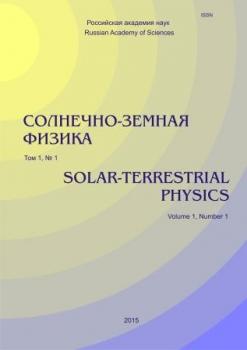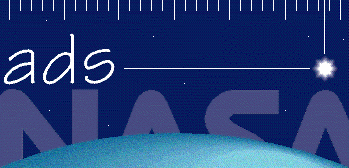Novosibirsk, Russian Federation
Novosibirsk, Novosibirsk, Russian Federation
The paper considers the behavior of the upper ionosphere at heights of the F2 layer during Forbush decreases in galactic cosmic rays (GCR FDs) and solar cosmic ray (SCR) bursts. We use the results of long-term continuous observations of cosmic rays and the ionosphere in Novosibirsk for the period from 1968 to 2021. The ionospheric disturbances in the F2 layer during GCR FDs, which were accompanied by a magnetic storm, took the form of an ionospheric storm negative phase. The scale of the negative phase of the ionospheric F-layer disturbance increases with increasing Dst index of the geomagnetic storm. This increase in the amplitude of the ionospheric disturbance becomes more and more significant depending on the magnitude of Forbush decreases. A burst of the amplitude of the daily variation in the F2-layer critical frequency occurred eight days after SCR bursts and GCR FD front. We assume that this burst might have been caused by disturbances in the lower atmosphere due to significant variations in the intensity of SCR and GCR fluxes.
solar cosmic rays, galactic cosmic rays, ionosphere, geomagnetic disturbance
1. Al’pert Ja.L. Rasprostranenie radiovoln i ionosfera [Radio wave propagation and the ionosphere] Moscow, Nauka Publ., 1972, 563 p. (In Russian).
2. Bazilevskaya G.A. Solar cosmic rays in the near Earth space and the atmosphere. Adv. Space Res. 2005, vol. 35, pp. 458-464. DOI:https://doi.org/10.1016/j.asr.2004.11.019.
3. Chernigovskaya M.A., Shpynev B.G., Yasyukevich A.S., Khabituev D.S. Disturbances of thermospheric molecular gas and their relationship to longitudinal inhomogeneities of ionospheric disturbances in the Northern Hemisphere during geomagnetic storm. Sovremennye problemy distantsionnogo zondirovaniya Zemli iz kosmosa [Current problems in remote sensing of the Earth from space]. 2021a, vol. 18, no. 5, pp. 295-304. DOI:https://doi.org/10.21046/2070-7401-2021-18-5-295-304. (In Russian).
4. Chernigovskaya M.A., Shpynev B.G., Yasyukevich A.S., Khabituev D.S., Ratovsky K.G., Belinskaya A.Yu., et al. Longitudinal variations of geomagnetic and ionospheric parameters in the Northern Hemisphere during magnetic storms according to multi-instrument observations. Adv. Space Res. 2021b, vol. 67, no. 2, pp. 762-776. DOI:https://doi.org/10.1016/j.asr.2020.10.028.
5. Danilov A.D. The reaction of the region F to geomagnetic disturbances. Geliogeofizicheskie issledovanija [Geophysical research]. 2013, vol. 5, pp. 1-33. (In Russian).
6. Danilov A.D., Belik L.D. Thermospheric composition and the positive phase of an ionospheric storm. Adv. Space Res. 1992, vol. 12, iss. 10, pp. 257-260.
7. Danilov A.D., Laštovička J. Effects of geomagnetic storms on the ionosphere and atmosphere. Geomagnetism and Aeronomy. 2001, vol. 2, no. 3, pp. 209-224.
8. Driatsky V.M. Priroda anomal’nogo pogloshcheniya kosmicheskogo radioizlucheniya v nizhnei ionosfere na vysokikh shirotakh [The nature of the anomalous absorption of cosmic radio emission in the lower ionosphere at high latitudes]. Leningrad, Gidrometeoizdat Publ., 1974, 224 p. (In Russian).
9. Givishvili G.V., Leshchenko L.N. Long-term trend of the ionospheric E-layer response to solar flares. Solar-Terr. Phys. 2022, vol. 8, iss. 1, pp. 51-57. DOI:https://doi.org/10.12737/stp-81202206.
10. Kudryavtsev I.V., Junger X. Variations in atmospheric transparency under the action of galactic cosmic rays as a possible cause of their effect on the formation of cloudiness. Geomagnetism and Aeronomy. 2011, vol. 51, no. 5, pp. 656-663. DOI:https://doi.org/10.1134/S0016793211050100.
11. Kunitsyn V.E., Nazarenko M.O., Nesterov I.A., Padokhin A.M. Solar flare forcing on ionization of upper atmosphere. Comparative study of several major X-class events of 23rd and 24th solar cycles. Moscow University Phys. Bull. 2015, vol. 70, no. 4, pp. 312-318. DOI:https://doi.org/10.3103/S0027134915040128.
12. Leonovich L.A., Tashchilin A.V. Disturbances in the topside ionosphere during solar flares. Geomagnetism and Aeronomy. 2008, vol. 48, no. 6, pp. 759-767. DOI:https://doi.org/10.1134/S00 1679320806008X.
13. Leonovich L.A., Tashchilin A.V., Portnyagina O.Y. Dependence of the ionospheric response on the solar flare parameters based on the theoretical modeling and GPS data. Geomagnetism and Aeronomy. 2010, vol. 50, no. 2, pp. 201-210. DOI:https://doi.org/10.1134/S0016793210020076.
14. Lushnikov A.A., Lyubovtseva Y.S., Gvishiani A.D., Zagaynov V.A. Nanoaerosol Formation in the Troposphere under the Action of Cosmic Radiation. Izvestiya. Atmospheric and Oceanic Physics. 2014, vol. 50, no. 2, pp. 152-159. DOI:https://doi.org/10.1134/S0001433814020078.
15. Mikhailov A.V., Skoblin M.G., Forster M. Day-time F2-layer positive storm effect at middle and lower latitudes. Ann. Geophys. 1995, vol. 13, pp. 532-540. DOI:https://doi.org/10.1007/s00585-995-0532-y.
16. Mitra A. Vozdeistvie solnechnykh vspyshek na ionosferu Zemli [The impact of solar flares on the Earth's ionosphere]. Moscow, Mir Publ., 1977, 370 p. (English edition: Mitra A.P. Ionospheric Effects of Solar Flares. D. Reidel, 1974, 296 p.)
17. Prolss G.W. Ionospheric F-region storms. Handbook of Atmospheric Electrodynamics / Eds. H. Volland. Boca Raton, CRC Press, 1995, vol. 2, ch. 8, pp. 195-248.
18. Raspopov O.M., Veretenenko S.V. Solar activity and cosmic rays: Influence on cloudiness and processes in the lower atmosphere (In memory and on the 75th anniversary of M.I. Pudovkin). Geomagnetism and Aeronomy. 2009, vol. 49, no. 2, pp. 137-145. DOI:https://doi.org/10.1134/S0016793209020017.
19. Ratovsky K.G., Klimenko M.V., Klimenko V.V., Chirik N.V., Korenkova N.A., Kotova D.S. After-effects of geomagnetic storms: statistical analysis and theoretical explanation. Solar-Terr. Phys. 2018, vol. 4, no. 4, pp. 26-32. DOI:https://doi.org/10.12737/stp-44201804.
20. Ratovsky K.G., Klimenko M.V., Yasyukevich Y.V., Klimenko V.V., Vesnin A.M. Statistical analysis and interpretation of high-, mid- and low-latitude responses in regional electron content to geomagnetic storms. Atmosphere. 2020, vol. 11, no. 12, 1308. DOI:https://doi.org/10.3390/atmos11121308.
21. Rishbeth H., Barron R. Equilibrium electron distribution in the ionospheric F2-layer. J. Atmos. Terr. Phys. 1960, vol. 18, iss. 2-3, pp. 234-252. DOI:https://doi.org/10.1016/0021-9169(60)90095-7.
22. Seaton M.J. A possible explanation of the drop in F-region critical densities accompanying major ionospheric storms. J. Atmos. Terr. Phys. 1956, vol. 8, iss. 1, pp. 122-123. DOI:https://doi.org/10.1016/0021-9169(56)90102-7.
23. Smirnov V.M., Smirnova E.V. Ionospheric effects of two solar flares in the maximum of solar cycle 23 and in the minimum of solar cycle 24. Solar-Terr. Phys. 2019, vol. 5, iss. 2, pp. 76-80. DOI:https://doi.org/10.12737/stp-52201911.
24. Veretenenko S.V., Thejll P. Effects of energetic solar proton events on the cyclone development in the North Atlantic. J. Atmos. Solar-Terr. Phys. 2004, vol. 66, iss. 5, pp. 393-405. DOI:https://doi.org/10.1016/j.jastp.2003.11.005.
25. Veretenenko S.V., Thejll P. Cyclone regeneration in the North Atlantic intensified by energetic solar proton events. Adv. Space Res. 2005, vol. 35, no. 3, pp. 470-475. DOI:https://doi.org/10.1016/j.asr.2005.01.079.
26. URL: http://193.232.24.200/nvbk/main.htm (accessed May 18, 2022).
27. URL: http://im.ipgg.sbras.ru (accessed May 18, 2022).
28. URL: http://www.ckp-rf.ru/usu/433536 (accessed May 18, 2022).



















